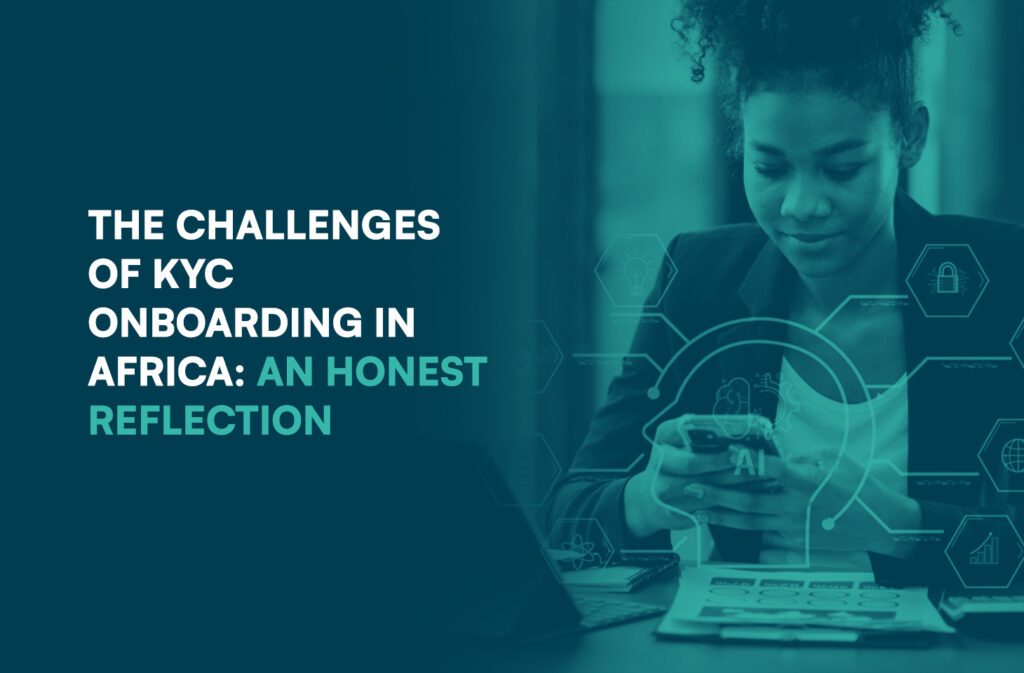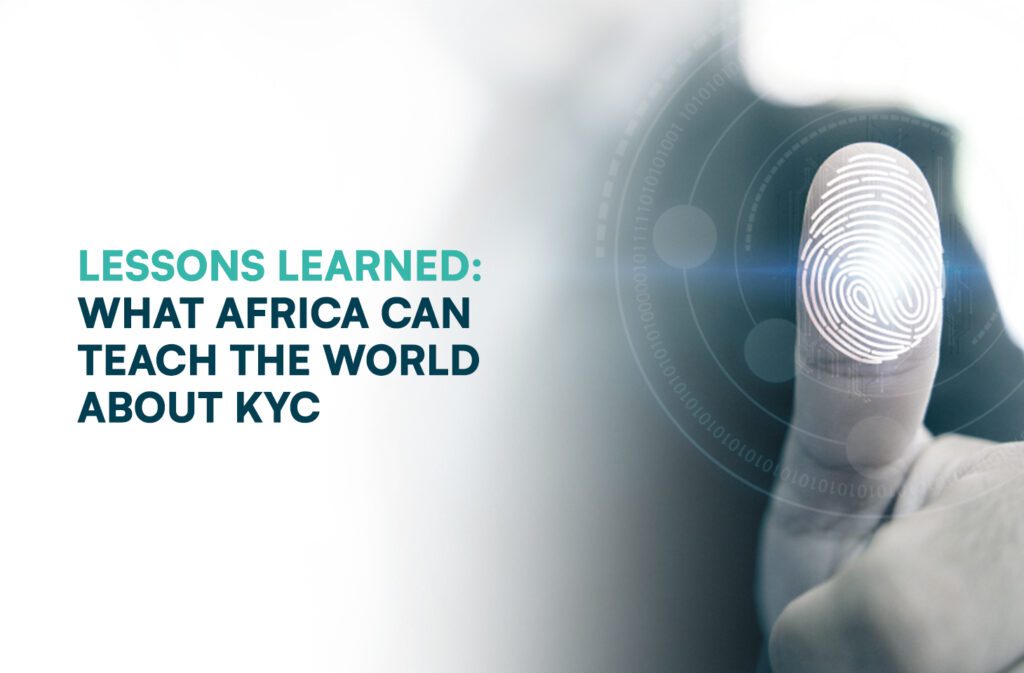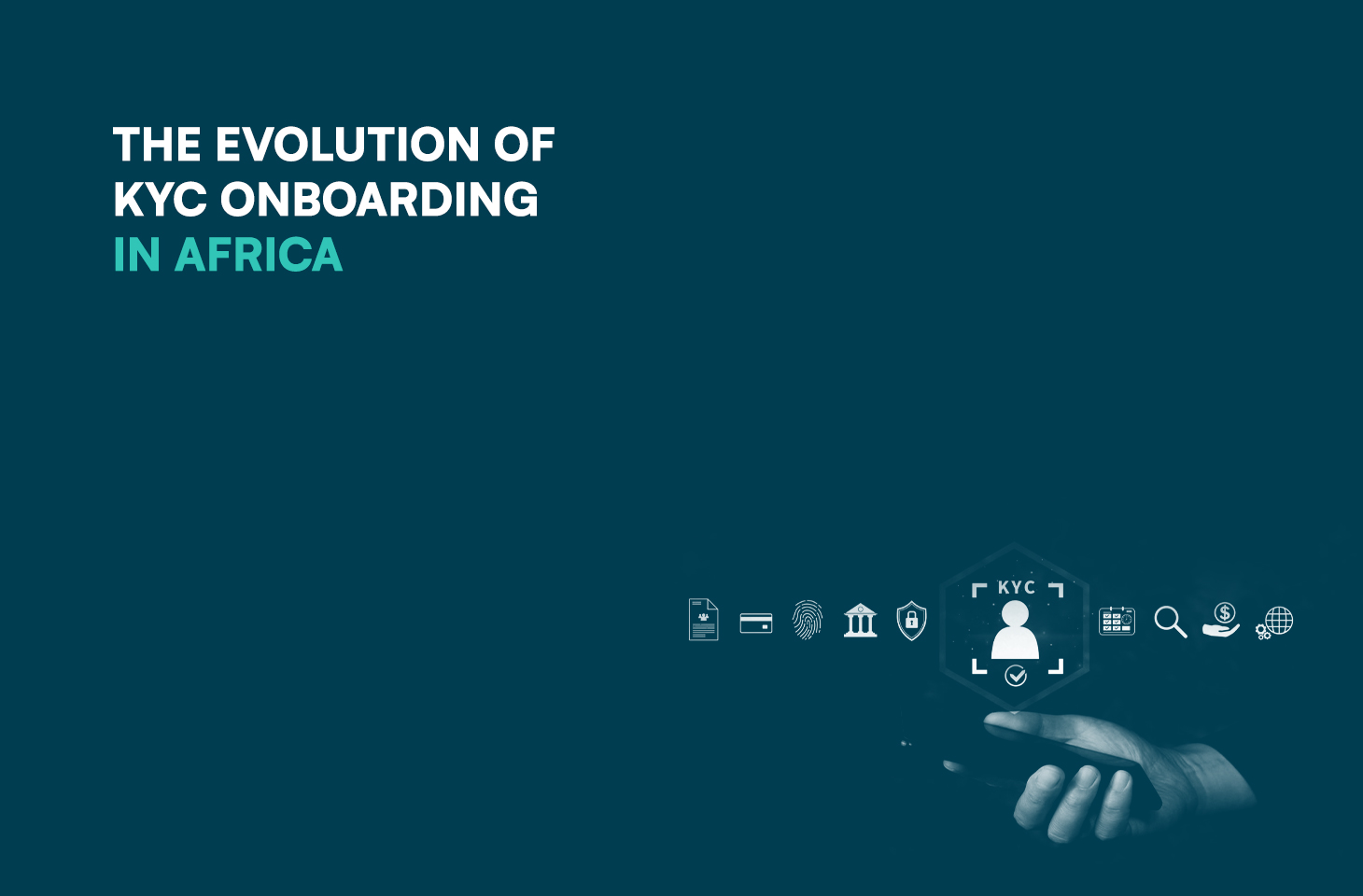Introduction: A Personal View into KYC Onboarding in Africa
As a company deeply embedded in Africa’s fintech space, particularly in the realm of KYC (Know Your Customer) and customer onboarding processes, we have witnessed firsthand how this process has transformed across the continent over the past few years. What was once a very tedious, manual, paperwork-heavy task has now evolved into a technology-driven necessity, shaping the way businesses interact with their customers across the world.
When starting a fintech business, there are many moving parts—product, payments, partnerships, and people. But one area that often feels like a roadblock is compliance. It can seem like a set of restrictions meant to slow you down. And in truth, sometimes it does. But the reason it exists is simple: to protect both your business and your users.
Without proper checks, individuals can take advantage of your systems, leading to fraud, losses, and long-term damage. Regulators step in to prevent that. They’re not just watching your business—they’re making sure you don’t exploit your users or leave their data exposed to third parties who could do real harm.
This is where proper KYC processes come in. When done right, they help you verify your users, reduce fraud, and build a strong base of trust. Businesses that take the time to set things up properly—especially around onboarding and compliance—aren’t just ticking boxes. They’re laying the foundation for long-term, low-risk growth in a space that rewards trust and transparency.
But, before we look into the evolution of KYC in Africa, let’s see how it started.
The Roots of KYC Onboarding in Africa: Evolution from Paper to Digital
A few years ago, financial institutions in Africa and across the world relied heavily on manual verification processes. Customers had to submit physical copies of IDs, utility bills, and bank statements—often in person. This approach was slow, error-prone, and frustrating for both sides. Back-and-forth communication took days, sometimes weeks.
We cannot, however, say that fintech companies were not utilizing technologies—they were. It’s just that the technology wasn’t yet evolved enough to fully solve these manual processes, so the work had to be done anyway.
Institutions were used to this manual way of doing things. It worked to some extent, especially when handling low volumes. But when it came to scaling operations, the process showed its limits. Even today, some financial institutions still rely on outdated methods. It’s not uncommon to be asked for a stack of physical documents just to verify your identity.
I remember a time I had to physically photocopy my National ID and take it to a bank in Kenya just to open an account. No email option. No portal upload. Just paper. These kinds of delays and inconveniences push potential customers away—especially now where people expect fast, digital-first onboarding.
In many African countries, where access to official documentation is limited, this created significant barriers. People in rural or informal sectors, lacking official IDs or proof of address, were often excluded from participating in formal financial systems. At the same time, the risk of fraud, identity theft, and money laundering remained high, with criminals exploiting these gaps in verification processes.
However, the rise of digital transformation in the early 2010s began to change all that. The adoption of mobile technology, particularly smartphones, provided a catalyst for rethinking how businesses could verify identities more securely and efficiently. Fintechs recognized this gap and began developing mobile-first solutions that allowed customers to submit their documents digitally for KYC verification.
In countries like Kenya, with mobile money platforms like M-Pesa leading the charge, digital onboarding quickly gained traction. Soon after, financial institutions across the continent began shifting to digital platforms for onboarding, implementing biometric verification, AI-driven document recognition, and other advanced KYC technologies.
KYC Onboarding in Africa Technology-Driven Shift: Innovation and Adaptation
As Africa’s fintech ecosystem matured, so did the KYC process. Innovations like biometric verification (including facial recognition and fingerprint scanning) quickly became commonplace, allowing businesses to onboard customers with much higher efficiency.
One key driver of this shift is the increasing use of Artificial Intelligence (AI) and Machine Learning (ML) in KYC. These technologies have enabled automated document verification and real-time identity checks, significantly reducing the turnaround time for KYC approvals and increasing accuracy. What’s more, AI’s ability to flag discrepancies or potential fraud patterns in customer data has added an extra layer of security, something that’s crucial in the fight against financial crime.
Another notable development has been the widespread adoption of mobile technology. With over 600 million mobile connections across the continent, mobile devices are no longer just tools for communication and have become gateways to financial services. By leveraging mobile phones, fintech companies have made KYC processes more accessible to the underbanked, those without access to traditional banking infrastructure.
For instance, in countries like Nigeria, Ghana, and South Africa, mobile operators have partnered with fintech firms to offer digital identity solutions, allowing customers to authenticate their identities with a simple phone number and a few additional details.
The Challenges of KYC Onboarding in Africa: An Honest Reflection

However, despite these impressive advancements, there are still significant challenges to overcome.
- The Digital Divide: While mobile penetration is high in Africa, internet access remains uneven. In rural and remote areas, access to reliable internet can be a challenge, making the digital KYC process difficult or even impossible. This gap limits the reach of digital services and forces companies to look for hybrid solutions that combine both digital and traditional methods.
- Fragmented Regulations: Africa is not a single market, and regulatory frameworks across the continent are far from uniform. Some countries have embraced digital KYC verification with open arms, while others remain hesitant, citing concerns over data privacy, fraud prevention, and the security of digital platforms. The challenge is that businesses must adapt to local regulations, which can vary greatly across borders.
- Lack of Trust in Digital Solutions: One of the biggest hurdles for businesses in the region is convincing customers to trust digital KYC processes. In many cases, people remain skeptical about submitting personal data through mobile applications, fearing their information may be misused or stolen. Public education about the importance of KYC and the security of these systems is key to overcoming this challenge.
- Infrastructure Barriers: Beyond internet access, other infrastructural challenges continue to affect the implementation of KYC onboarding. For instance, the lack of consistent power supply in certain areas can disrupt the digital onboarding process, which is a significant challenge for businesses attempting to serve a broad market.
Despite these challenges, the potential for KYC to drive financial inclusion in Africa is enormous. As more fintech companies and banks adopt advanced KYC technologies, these obstacles will gradually be addressed, either through local innovation or by aligning with global best practices.
The Future of KYC and Onboarding in Africa
Looking ahead, I’m optimistic about the future of KYC in Africa. The next phase of KYC innovation will likely focus on creating truly inclusive systems that can serve the most underserved populations. The use of blockchain for identity verification is already being explored in various countries, and I foresee it playing a key role in providing a secure, tamper-proof way to store and share KYC information.
Furthermore, we are likely to see a greater push for digital identity systems, which would allow Africans to have verified identities across platforms, making it easier for them to access financial services, government services, and even healthcare. This would not only streamline the KYC process but also enable more Africans to participate in the digital economy.
Ultimately, trust will remain at the heart of KYC in Africa. As fintech companies continue to improve transparency and communication around KYC processes, customers will gradually gain more confidence in these systems. This shift will ultimately pave the way for greater financial inclusion, as more individuals—especially those in rural or marginalized communities—gain access to formal financial services.
Lessons Learned: What Africa Can Teach the World About KYC

Prembly as KYC solution provider in Africa has been on the ground, helping businesses navigate KYC in Africa, we can confidently say that the continent has unique insights to offer the global fintech community. The challenges we face in Africa including regulatory fragmentation, limited infrastructure, and a diverse customer base—have forced businesses to think outside the box and develop innovative solutions that work to solve our specific challenges.
Africa is teaching the world that KYC doesn’t just happen in developed markets. It can be inclusive, efficient, and, most importantly, transformative. The rest of the world could learn a lot from Africa’s approach to tackling the evolving challenges of digital identity verification and KYC onboarding.
Conclusion: The Road Ahead
KYC onboarding in Africa has come a long way, but we’re just getting started. The pace of digital transformation will only accelerate, and with it, the way KYC is conducted will continue to evolve. As the continent overcomes its infrastructure and regulatory challenges, Africa will emerge as a global leader in digital KYC solutions. For fintechs and businesses operating in Africa, now is the time to embrace digital-first solutions and ensure that their KYC processes are scalable, secure, and inclusive.
The journey ahead might be filled with challenges, but with the right innovations and a focus on customer-centricity, Africa will set the standard for KYC onboarding on the global stage.
Want to simplify your KYC process and ensure you’re compliant? Explore how our solutions can help you onboard customers faster and more securely. Sign up today.







